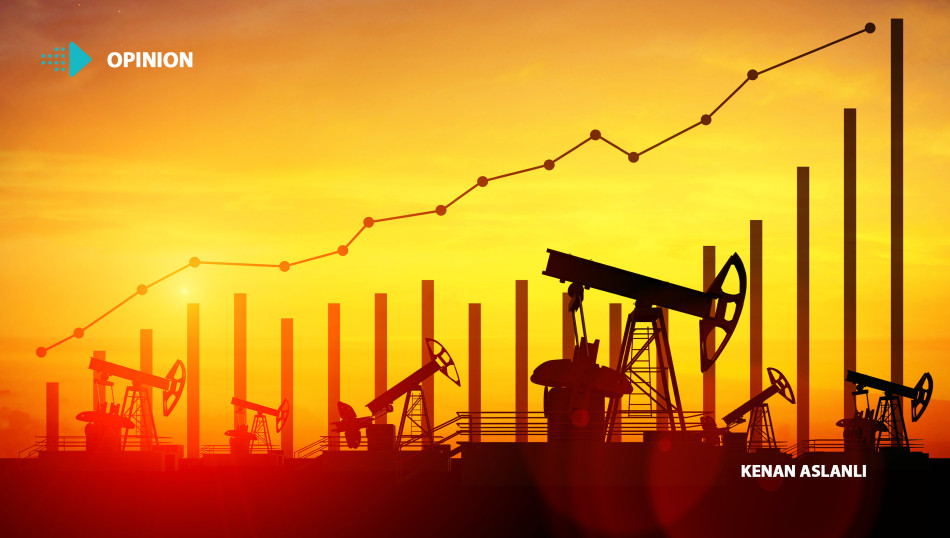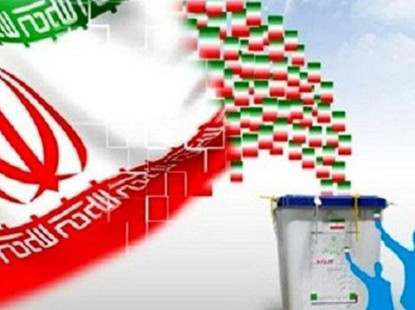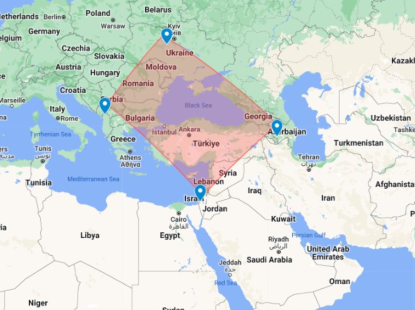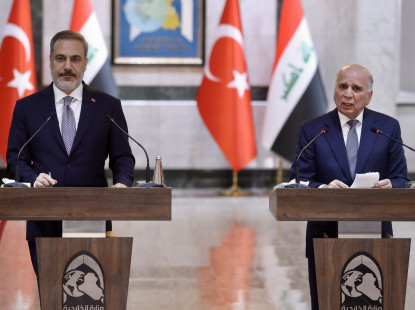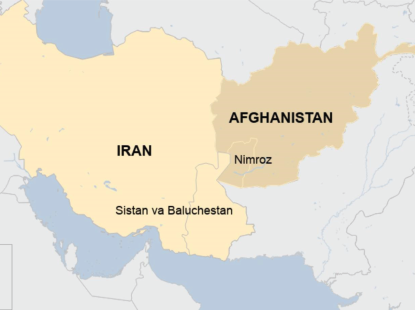Where Is the Global Oil Market Heading?
Immediately after Russia launched a military intervention in Ukraine on February 24, new and more effective sanctions were imposed on the energy and financial sector of this country by Western countries and developed G-7 countries. After these new sanctions, the total number of sanctions imposed on the Russian economy exceeded 5,000, and according to this indicator, Russia surpassed Iran and rose to first place in the world. With the executive order signed by US President Joe Biden on March 8, imports of crude oil, petroleum products, liquefied natural gas (LNG), and coal from Russia were banned. Furthermore, US persons are prohibited from making new investments in Russia's energy sector, financing, facilitating, or providing any form of guarantee for any operation/transaction related to this country's energy sector. Earlier US sanctions targeting Russia's energy sector prohibited the following: (1) Export of technologies and equipment to Russia that to be used for oil and natural gas exploration and production in deep waters, in the Arctic region, in regions with shale oil-gas reserves; (2) Exports of chemicals and technologies to Russia used in the production of petroleum products by crude oil refineries; (3) Being a shareholder of Gazprom and other oil, gas, and mining companies owned by the Russian state.
These "smart sanctions" were designed taking into account that Russia's oil and gas reserves in Western Siberia are dwindling, and the country is slowly moving north (continental shelf and Arctic region) and East Siberia to boost oil production in the medium and long term. If these sanctions are not lifted, they may hurt Russian oil production, perhaps not in 2022 but in the years to come. As of January 2022, Russia was the world's third-largest oil producer (after the USA and Saudi Arabia) with an oil production of more than 11 million barrels per day and the largest oil exporter in the world with a daily export of 7.8 million barrels of crude oil, petroleum products, and condensate.
According to OPEC data for January 2022, oil production in Iran was 2.5 million barrels per day, and it was 0.7 million barrels per day in Venezuela, countries that negotiations are made by potentially seeing these as an alternative to Russia in the global oil market. For now, Iran can only provide one-third of Russia's daily oil supply to the global oil market. However, the potential of Iran's and Venezuela's oil production, oil export, and oil reserves make these two countries to be seen as rivals to Russia together. In OPEC, led by Saudi Arabia, there is a decrease in oil production of some member countries such as Libya due to security and technical reasons. While the USA plans to increase its oil production, on the other hand, it has committed to using a total of 60 million barrels of strategic oil reserves to positively affect the supply and demand balance in the oil market together with the major oil consumer countries that are members of the International Energy Agency (IEA).
The monthly imports of crude oil and petroleum products from Russia to the USA averaged 20 million barrels in 2021. The US imported about 0.7 million barrels/day of crude oil and refined petroleum products from Russia in 2021, and it accounted for 8% of the US’s total imports of crude oil and petroleum products. Crude oil and petroleum products exported to the USA are equal to 9% of Russia's total oil exports. Therefore, for now, only a part of Russia's total oil exports are at risk of sanctions. Even if the EU countries, to which about 50% of Russia's oil exports are directed, join the sanctions after the initial stage (when it will be fully satisfied with the uninterrupted supply of alternative resources), it can be predicted that China, to which 30% of oil exports are directed, will not easily join to the international sanctions. Russia sold 1.6 million barrels per day of crude oil to China in 2021, making it the largest buyer of Russian crude oil. In any case, the import embargo by the USA, the UK, and other countries would deprive Russia of billions of dollars in annual revenue. Since oil revenues will decrease, it can be stated that the economic growth, which has already followed a stagnant course, will be severely hit by the sanctions.
Russia exported approximately 262 billion USD worth of fossil fuels and other types of energy (crude oil, petroleum products, natural gas, LNG, coal, electricity) in 2021, which corresponds to 53% of its total annual exports. Russia generated 110 billion dollars in oil revenues and more than 60 billion dollars in natural gas revenues in 2021. These revenues will vary depending on how much oil exports will decrease due to the sanctions and the course of oil prices. Some experts argue that after Russia’s military intervention in Ukraine, no customers were found for approximately 2-3 million barrels of the Russian crude oil supplied to the market daily. On the one hand, the problems that will arise in oil sales, challenges in financing, and access to advanced technology due to the sanctions may deteriorate Russia’s position even more. Russia is dependent on foreign investment and technology, and countries that impose sanctions on it also have limitations such as high oil prices (especially over 150 USD per barrel) and the growing inflationary pressure due to the high energy prices.
Forecasts show that oil prices could fluctuate between 150-200 USD per barrel in 2022 if the oil ban and sanctions against Russia are fully implemented. It is even predicted that oil prices will exceed 200 USD per barrel in 2022. The Russian side claims that abandoning Russian oil will have severe consequences for the world oil market, and the oil prices will reach 300 USD per barrel. Sanctioned energy exporters often sell oil at a discount. For example, Iranian oil was sold to China for 5-7 USD cheaper than the average market price of "Brent" and "Oman" oil benchmarks in 2021. But as long as oil prices stay above 100 USD per barrel in 2022, it will be feasible for Russia to offer serious discounts to potential customers. It will take more than a year to quickly change the volume of Russian oil in the European market, and therefore, medium-term fluctuations in the oil markets will be inevitable. In addition to oil prices, natural gas prices have reached historical record levels, especially in Europe (3600 USD for 1000 cubic meters in March 2022). Sanctions against Russia in natural gas will not be as easy as oil, especially for EU countries. The EU purchases around 40% of the total gas imports from Russia, and the value of this imported gas was approximately 118 million dollars per day in early 2022. While planning its military intervention in Ukraine, Russia took into account the current situation in the global oil market and the European natural gas market. Russia has more opportunity to put pressure on consumer countries related to natural gas, but oil is more critical for the Russian economy in terms of income from sales.
The factors that will determine the direction of the global oil market throughout 2022 can be listed as follows: (1) how quickly resources from alternative countries can replace Russian oil; (2) loopholes during the long-term enforcement of sanctions; (3) the risks associated with the learning and applying from countries such as Iran the methods of bypassing sanctions by Russia (for example, through the members of the Eurasian Economic Union and even Iran); (4) the attitude of major energy consumers, such as China and India, regarding the sanctions against Russian oil; (5) the size of the “coalition” that imposes sanctions on Russian oil and gas; (6) psychological behavior and decisions of actors trading in the global oil market; (7) concluding terms of oil-related negotiations with Iran and Venezuela; (8) the future of Saudi Arabia-Russia cooperation on global oil supply in the “OPEC+” format.
It should not be forgotten that Russia is not only an energy producer but also an active participant in various global, regional and thematic platforms (from negotiations with Iran on Nuclear Deal to negotiations on oil supply within the framework of "OPEC+") that provide room for maneuver. Russia's lobbying power and various networks in the EU countries could be added to this context. From this point of view, without weakening Russia's representative power on different platforms and its political and economic networks working in favor of this country, it will be much more difficult to at least exclude this country from the global energy equation or isolate it similar to Iran.
